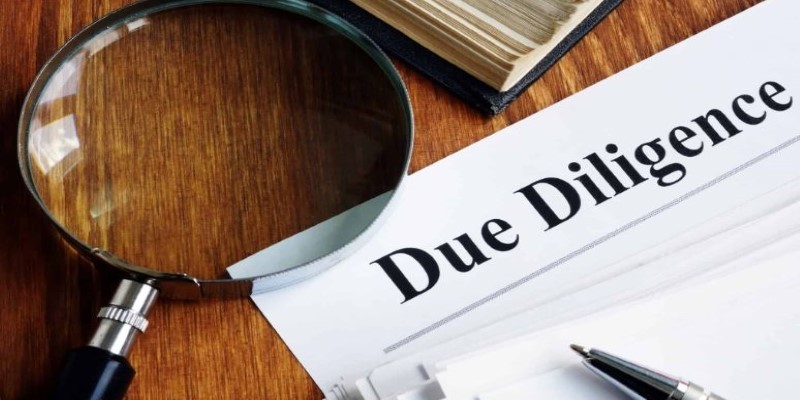Buying real estate can be an exciting, life-changing decision, but it's not without its risks. The due diligence period is your safeguard—a critical phase where buyers verify the true value and condition of a property before committing. This isn't just about taking a glance; it's a thorough inspection involving property assessments, legal checks, and financial evaluations.
It’s time to find out if any problems are not immediately apparent. For those who are about to invest, knowing the due diligence period can prevent you from having costly surprises and ensure you make a wise, well-informed choice.
What Is the Due Diligence Period?
The due diligence phase is an essential period in a real estate deal. It grants the buyer an option to review a property intensively prior to buying it. The period usually stated in the real estate contract can range from several days up to several weeks, depending on state laws and terms agreed by the buyer and seller.
During the due diligence period, the buyers perform inspections to determine the physical condition of the property, including structural, plumbing, and electrical inspections. Buyers also look at legal matters, including title history, liens, and zoning regulations. Buyers also look at the financial status of the property, including taxes, homeowners' association fees, and any outstanding loans, to make a solid investment.
If something does go wrong during this period—such as expensive repairs or lawsuits—the buyer can renegotiate the deal, ask for repairs, or even walk away from the deal without drastic penalties. This interval provides a vital layer of protection so that buyers will not end up with unexpected problems after the sale is completed. Finally, it builds trust and transparency in the deal, making the buyer feel assured to decide sensibly prior to proceeding with the purchase.
What Happens During the Due Diligence Period?
Due diligence isn't a swift walk-through of the property—though that can occur—but an organized multi-stage process created to ensure the property is a smart investment. Here's what typically happens during this critical time.
Property Inspections

The first step involves thorough property inspections. A general home inspection checks for structural issues, plumbing, electrical systems, roof conditions, and potential safety hazards. Depending on the location and type of property, additional specialized inspections for mold, pests, radon, or other concerns may also be performed. For commercial properties, environmental assessments and zoning verifications are common.
Title Search
A title search ensures that the property’s ownership history is clear. This search uncovers any legal claims, liens, or disputes that could affect ownership. It also confirms that the seller has the legal right to sell the property and that no hidden issues could derail the transaction.
Appraisal
An appraisal is typically required for buyers using a mortgage. The lender needs to ensure the property's appraised value matches the loan amount. If the appraisal comes in lower than expected, the buyer may have to renegotiate the price or provide additional funds to close the deal.
Financial Review
The buyer also reviews the financial aspects of the property, including homeowners' association (HOA) fees, property taxes, and insurance costs. If the property is an investment, rental income potential and the current market conditions are assessed to ensure the property aligns with the buyer’s financial goals.
Negotiations
Lastly, this period is when negotiations take place. If inspections reveal significant issues, the buyer can request repairs or a reduction in the purchase price. If everything checks out, the transaction moves forward. However, if major problems arise, the buyer has the option to exit the contract without facing severe financial penalties.
Why Is the Due Diligence Period Important?
The due diligence period is one of the most crucial steps in a real estate transaction. Without it, buyers risk ending up with a property that could come with hidden defects, legal complications, or unexpected financial burdens. This period allows the buyer to thoroughly assess the property to ensure that their investment matches their expectations and that no unpleasant surprises will arise after the deal is closed.
Protection Against Hidden Issues
This phase is essential for uncovering any hidden problems, whether structural, legal, or financial. Sellers may present the property in the best possible light, but the due diligence period gives buyers the opportunity to perform their investigations. Whether it's inspecting the property for defects or reviewing title histories, this process helps confirm that everything is in order before committing.
Avoiding Financial Pitfalls

From a financial perspective, skipping the due diligence period can be a costly mistake. Imagine purchasing a property only to discover significant issues afterward, such as structural damage or ongoing legal disputes. These hidden problems can quickly lead to expenses far beyond what was initially budgeted, making it essential to ensure everything is in proper condition before closing the deal.
Critical for Real Estate Investors
The due diligence period is especially important for real estate investors. It allows them to evaluate market conditions, verify rental income potential, and assess whether the property is a solid investment. This period helps ensure the investment will generate the expected returns and meet the buyer’s financial goals.
Ultimately, the due diligence period provides peace of mind. It’s the safeguard that helps ensure buyers make well-informed, confident decisions, avoiding costly regrets in the future.
Conclusion
The due diligence period is a vital part of any real estate transaction, offering buyers the opportunity to thoroughly inspect and evaluate a property before making a final commitment. This period allows for inspections, legal checks, and financial assessments, ensuring that buyers are fully informed about potential risks or issues. Without due diligence, buyers may face costly surprises that could have been avoided. Whether purchasing a home or an investment property, this period provides essential protection and peace of mind. In the end, a proper due diligence process helps buyers make confident, informed decisions and secure a sound investment.












